Killing It at Killer Nashville
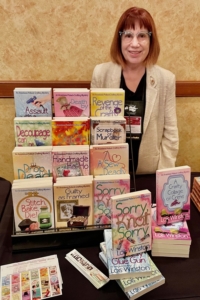
At the Killer Nashville book signing
By Lois Winston
Most writers are introverts. We spend much of our days alone with only our laptops or computers (or paper and pen for those who are still old-school) and rarely step foot into the real world. We’d rather spend our time in the world of our imagination with the characters we’ve created. However, every now and then, we venture out onto Earth One and mingle with actual humans.
One of the best places to do this is at a writers’ conference. Hanging with our peeps is our happy place in the real world because they’re the only people who truly “get” us. Because they’re just like us. Writers’ conferences are a chance to spend time with others of our special community. We renew friendships, make new friends, network, learn from some, and teach others. Conferences also occasionally give us a pat on the back, validating that this odd life we’ve chosen, with all its solitary hours of clicking away at the keyboard, is worthwhile.
Such was the case this past weekend when I attended Killer Nashville. Once upon a time, I attended three or four writers’ conferences a year. Then, life changed. I made the decision to “go indie” and no longer had a publisher willing to pick up some or all the expense of attending conferences. Between the conference fee, airfare, hotel, and meals, conferences are not cheap. I cut back drastically, only attending local conferences.
And then Covid hit.
As some of you know, in the middle of the pandemic, my husband and I made the difficult decision to pack up and move to Tennessee to be closer to family. Within days of settling into our new home in July of 2021, I discovered that after a two-year hiatus, the annual Killer Nashville writing conference was about to take place less than two miles from where I now live. Serendipity!
With few exceptions, most writers are introverts. Hence, those writer caves. But I missed my writing peeps in New Jersey. Killer Nashville gave me a chance to connect face-to-face with many other writers I only knew from online writing communities. I also made some new friends and have continued to do so each year I’ve attended since 2021.
The 2024 Killer Nashville conference was this past weekend, and it was a blast, even for this confirmed introvert. On Friday, I was on a panel discussing Writing Compelling Synopsis, Back Cover Copy, and Design. Saturday, I was on two panels, One Trait at a Time: How to Build a Character and Not Just One Book: Writing a Series. I was also one of ten authors who allowed attendees to pick our brains for four minutes each during Speed Date your Way to Author Marketing Success. On Sunday, I was on the Creating an Irresistible Hook for Your Book panel and the Writing Strong Protagonists panel.
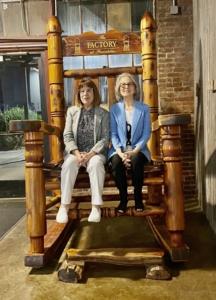
Vertically challenged Lois and Gay during an after-dinner stop for ice cream
And then there was Saturday night. Author Gay Yellen and I, along with our husbands, went out to dinner, something we’d also done last year. Upon returning to the hotel, our husbands headed for the bar while Gay and I ducked into the awards ceremony. Not ten seconds later, Clay Stafford, MC for the evening and Killer Nashville head honcho, announced the winner of the 2024 Silver Falchion Award for Best Comedy. Much to my surprise, he called my name!
I never expected to win. With few exceptions, throughout my writing career, I’ve always been the bridesmaid, rarely the bride. I hadn’t prepared any remarks because the one time I had attended the ceremony back in 2021, no one made any remarks. Winners were handed their awards, shook Clay’s hand, and a photographer snapped a picture. Maybe it was because we were all still coming out of Covid.
 This time, I was expected to say something. My mind still reeling over actually winning, I stepped up to the mic and thanked whoever it was who’d determined that A Crafty Collage of Crime, the twelfth book in my Anastasia Pollack Crafting Mystery Series, deserved the award this year. As I walked away, I heard Clay tell the audience that I was a woman of few words and there were probably plenty of people who wished that he was! (a person of few words, that is, not a woman!)
This time, I was expected to say something. My mind still reeling over actually winning, I stepped up to the mic and thanked whoever it was who’d determined that A Crafty Collage of Crime, the twelfth book in my Anastasia Pollack Crafting Mystery Series, deserved the award this year. As I walked away, I heard Clay tell the audience that I was a woman of few words and there were probably plenty of people who wished that he was! (a person of few words, that is, not a woman!)
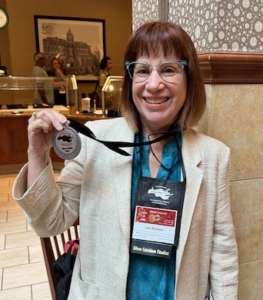
With my Best Comedy medal the next morning
Well, at least I didn’t bore anyone in the audience by droning on and on by thanking everyone, going all the way back to my kindergarten teacher!
Writers, what’s your favorite aspect of conferences? Readers, have you ever attended a readers’ convention or other book event? Post a comment for a chance to win a promo code for a free audiobook of any one of the first ten Anastasia Pollack Crafting Mystery.
~*~
USA Today and Amazon bestselling and award-winning author Lois Winston writes mystery, romance, romantic suspense, chick lit, women’s fiction, children’s chapter books, and nonfiction. Kirkus Reviews dubbed her critically acclaimed Anastasia Pollack Crafting Mystery series, “North Jersey’s more mature answer to Stephanie Plum.” In addition, Lois is a former literary agent and an award-winning craft and needlework designer who often draws much of her source material for both her characters and plots from her experiences in the crafts industry. Learn more about Lois and her books at her website where can also sign up for her newsletter and find links to her other social media: www.loiswinston.com


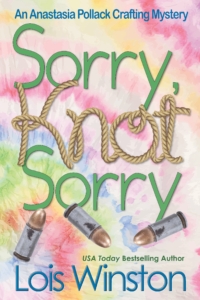 By Lois Winston
By Lois Winston


 The other day, I had reached a point in my current manuscript, the 13th book in my Anastasia Pollack Crafting Mystery Series, that had me stymied. I was more than two-thirds toward writing “The End.” I knew that I was at the point where I needed to return to one of the red herring threads that I’d left dangling in a much earlier chapter. I also knew what I wanted to have happen and to whom it should happen, but I found I was trying to shove the proverbial square peg into the round hole. No matter what I tried, the scene just wasn’t working.
The other day, I had reached a point in my current manuscript, the 13th book in my Anastasia Pollack Crafting Mystery Series, that had me stymied. I was more than two-thirds toward writing “The End.” I knew that I was at the point where I needed to return to one of the red herring threads that I’d left dangling in a much earlier chapter. I also knew what I wanted to have happen and to whom it should happen, but I found I was trying to shove the proverbial square peg into the round hole. No matter what I tried, the scene just wasn’t working.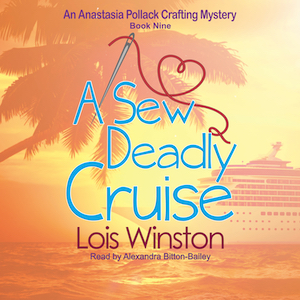 If you’re a reader, do you enjoy learning behind-the-scenes insights about the authors you read? If you’re a writer, do you have a critique partner or group you rely on for honest critiques of your work? Post a comment for a chance to win a promo code for a free audiobook download of A Sew Deadly Cruise, the ninth book in the Anastasia Pollack Crafting Mystery Series.
If you’re a reader, do you enjoy learning behind-the-scenes insights about the authors you read? If you’re a writer, do you have a critique partner or group you rely on for honest critiques of your work? Post a comment for a chance to win a promo code for a free audiobook download of A Sew Deadly Cruise, the ninth book in the Anastasia Pollack Crafting Mystery Series. By Donnell Ann Bell
By Donnell Ann Bell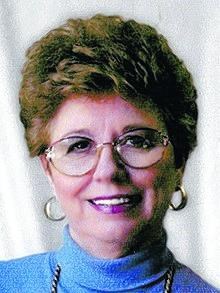
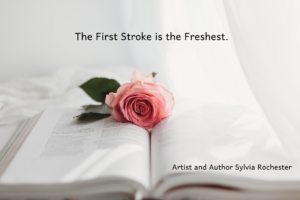
 By Lois Winston
By Lois Winston
 By Lois Winston
By Lois Winston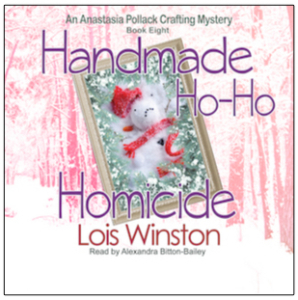
 By Lois Winston
By Lois Winston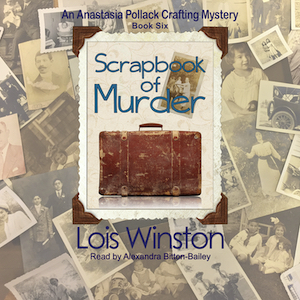 Scrapbook of Murder, the sixth book in my Anastasia Pollack Crafting Mystery Series, is now available as an audiobook. Post a comment for a chance to win a promo code for a free download.
Scrapbook of Murder, the sixth book in my Anastasia Pollack Crafting Mystery Series, is now available as an audiobook. Post a comment for a chance to win a promo code for a free download.